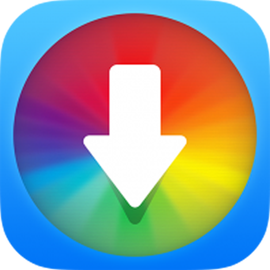From primitive commands and simple strings, Android programming has changed tremendously. Now, it involves many skills to make sure the output is satisfying and effective. Working within Android programming is prestigious, promising, and well-paid. You always have room for development, even if you’ve already reached high levels. But let us take a step back. These all career prospects heavily rely on education. And to become an in-demand specialist, you need to study hard, ace tests, and complete home assignments.
And however knowledgeable you may be in academia, there will always be tasks you will find problematic. Struggling with them, let alone skipping them, is by no means an option. So what do you do in such cases? Well, you’ve got several options to get programming assignment help.
Experts from mycodinghomework.com cast light on the most effective tips to let you deal with homework quickly and efficiently. Buckle up and read on to learn more about them.
Benefit from cloud technologies
You may not need to use cloud technologies if you’ve just started your studies. But if you are asked to create, test, or maintain an Android app, there is no better way to do that successfully than by referring to cloud technologies. The latter is valuable when working with system fragmentation. And the great thing about such technologies is that they don’t require any infrastructure (that’s pretty evident from the name of these technologies, isn’t it?).
Don’t shy away from using development tools and frameworks
Depending on your task, format, and requirements, it may be necessary to use development tools and frameworks. These two enable you to improve the program and secure its effectiveness and clarity. Moreover, you will be able to enhance and augment functionality at any time.
Avoid redundant objects
Whatever your assignment is, if it’s about coding, it’s about memory. And the last is very sensitive in that proper memory distribution requires effort and skills. To put it plainly, when you create an object, you need to allow the necessary amount of memory to process this object. And the more objects you add, the more memory you’ll need. While you can quickly fill your code with dozens of such objects, keep in mind that it will do no good to a battery.
Needless to say, technologies develop rapidly, and now programmers use concurrent garbage collectors, which consume less memory and thus ensure longer battery life. However, every Android expert will unhesitantly state that it’s better to avoid unnecessary objects. So, the next time you are about to include that object, make sure it is essential.
Rely on libraries
It may be pointless to bring up libraries–because, well, everyone knows that using them is a must–but if you’re a newbie in Android programming, here is the thing. Writing a code from scratch might seem incredible, mainly if you’re learning the ropes of Android programming. However, it takes plenty of time and doesn’t guarantee you’ll come up with something fruitful and fast. Using libraries, instead, gives you plenty of opportunities and accelerates your code immensely.
Get a rudimentary knowledge of Java design patterns
Learning the nuts and bolts of Java is time-consuming. Besides, you don’t have to dive deep into this programming language if you’ve just kicked off your academic path. Still, it would be excellent to learn fundamental things related to Java, for it will hugely impact your progress and average grade.
Learning basic commands and patterns like Factory, Facades, and Decorator will improve your code; more so, this knowledge will make you an asset to every group project you will be involved in.
Eradicate floating points
New technologies replace old ones and become more effective and agile. The same goes with floating points. While they were prevalent in the past, better alternatives exist these days. Take integers, for instance. Requiring way less space, they can execute code times faster than floating points.
Embrace test-driven development
Test-driven development, TDD for short, is a universal tool that works wonders. It makes the life of an Android programmer easier in various ways, which is why people rest upon such tools. Among other things, TDD serves the role of an editor, pointing out parts of code that can be improved, thus speeding up the development time. What’s more, TDD helps structure the code, polishes documentation, and secures the overall quality of the file.
Focus on User Interface
Functionality is cool, but many people often pay too much attention to it, so Interface gets overlooked. As a result, the app lacks an intuitive and navigable interface, pushing people away.
Other than the picture, the Interface must be swift and responsive. Bolstering the UI isn’t arduous if you opt for simplicity. This way, you don’t need solid hardware to make things work correctly. Upon measuring the running time of every operation, ensure to move long-running processes from the main thread.
Without a shadow of a doubt, the effectiveness of these tips depends on their relevance to your assignment. For instance, focusing on UI will be of no use if your task doesn’t touch upon it. Conversely, testing the running time and improving it will come in handy if you need to perfect the UI.
Aside from the mentioned, you are also encouraged to approach Android programming from a different angle. Reading dedicated threads on GitHub, Stack Overflow, and GitLab will allow you to better understand how the global Android community tackles various tasks and sets the trends. It may also help you with your homework, as these pages contain the best solutions to diverse problems.
These all won’t be so helpful if you are short on time or can’t deal with the assignment yourself at all. In this case, it’d be best to delegate the task to professionals from programming services. Besides meeting the requirements and deadlines, experts will break down the task into comprehensive pieces so that you understand the logic behind the assignment.
Finally, remember to keep working on your programming skills. Don’t get discouraged by mistakes; they must strengthen you, not weaken. Once you normalize your systemic work, you will become a quick learner and bear the fruits of your labor shortly!






![CCleaner Pro For Android v5.1.1 Apk Premium [Latest+Mod] CCleaner Pro For Android v5.1.1 Apk Premium [Latest+Mod]](https://www.androidappbd.com/wp-content/uploads/2018/03/ccleaner-pro-for-android5.png)
![Android Assistant Pro For Android v23.72 Premium [Latest] Android Assistant Pro For Android v23.72 Premium [Latest]](https://www.androidappbd.com/wp-content/uploads/2018/03/android-assistant-pro.png)

